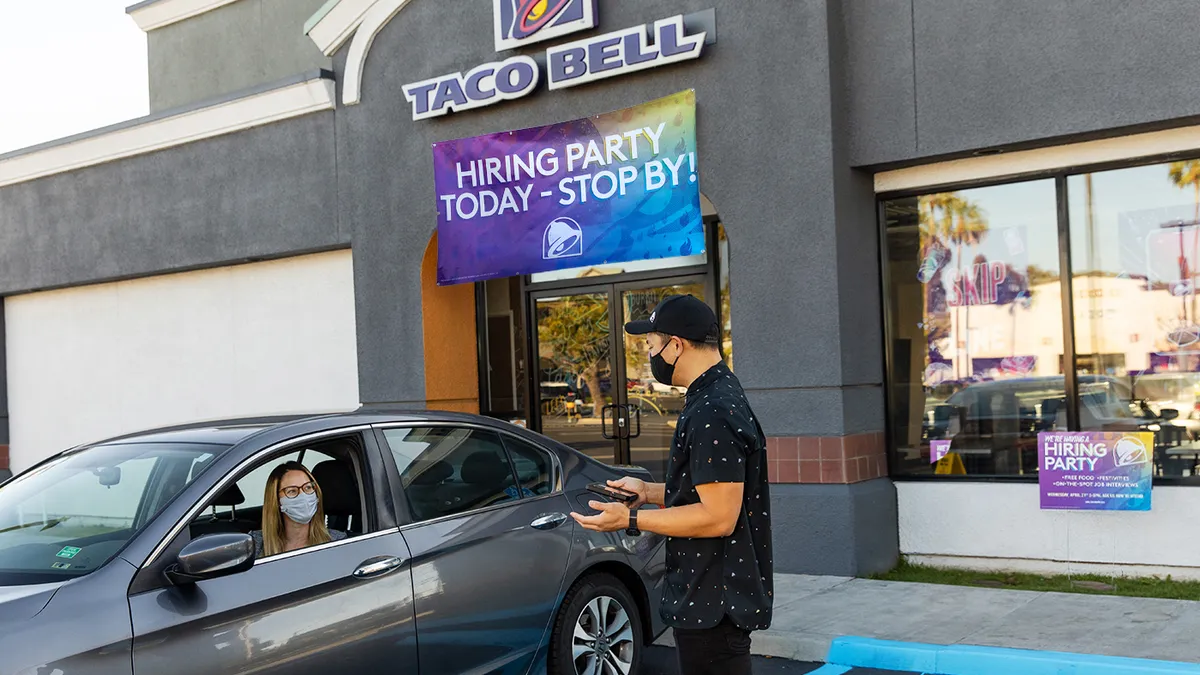Dive Brief:
- Taco Bell is raising its average minimum wage to $15 an hour at its company-owned restaurants by mid-2024, the company announced Tuesday.
- The chain is also rolling out additional employee benefits, including complimentary therapy for corporate employees at restaurants and its headquarters. Taco Bell emphasized its education benefit as well, which provides free tuition for employees attending a select number of programs, and its entrepreneur program, a leadership development initiative for general managers in company-owned restaurants.
- Continued low levels of labor participation and high turnover have caused upward pressure on wages in foodservice, even while inflation has eaten up most of the gains seen by workers.
Dive Insight:
Taco Bell's pledge to boost wages follows similar moves by Starbucks, Chipotle, Brinker International and Darden Restaurants, all of which have committed to raise wages over the next few years.
Other companies have taken more dramatic measures to address the labor shortage, however, with Raising Cane's deploying corporate office employees to work at restaurants while it sought to boost hiring.
The combination of a tight labor market and recovering consumer demand drove average hourly pay for non-supervisory food service workers above $16 an hour in October, according to the Bureau of Labor Statistics. While the pay increases for hourly workers may seem dramatic, price shocks triggered by supply chain issues have actually driven inflation-adjusted wages down.
According to BLS data, real income for hourly employees throughout the U.S. economy has fallen every month this year, except for August and September. The pressure inflation places on already low wages might be one factor preventing employees from returning to restaurant work, though the risk of COVID-19 and onerous working conditions are still serious obstacles.
Despite many restaurants' hope that wage increases will bolster employee retention and attract fresh talent to their networks, some operators are wary that the ripple effect on menu prices will result in lost sales. But research from the Cornell SC Johnson College of Business shows that increased restaurant wages have positively impacted customer service in the segment. Higher wages also resulted in fewer negative reviews about restaurant employees' friendliness and courtesy, per the university's research — a diner response that could counterbalance potential hesitation over menu price hikes.













